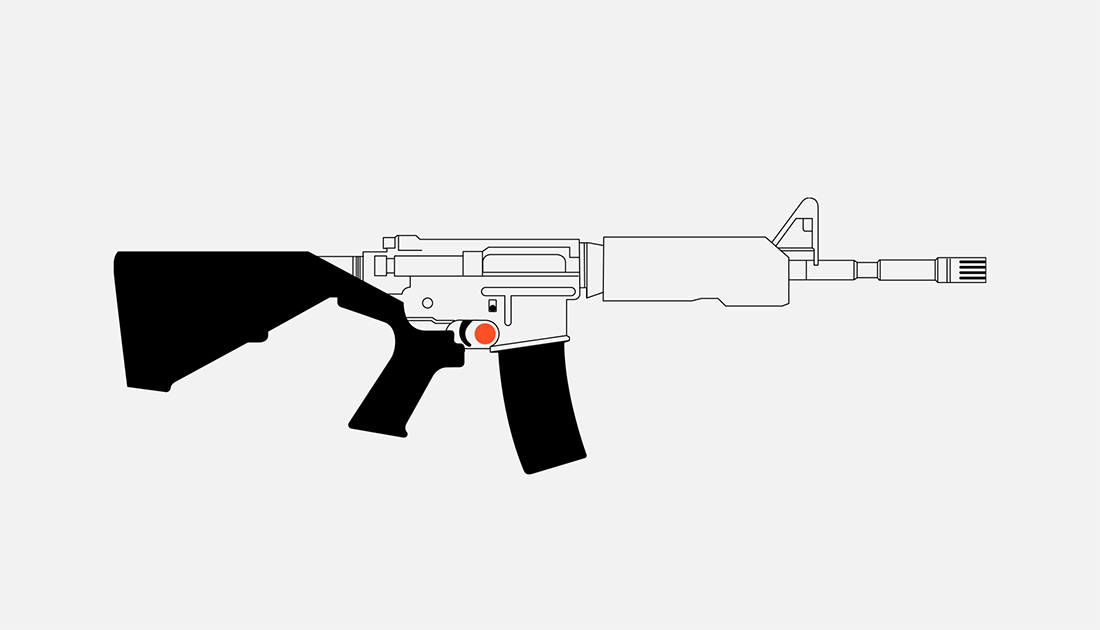The family of a woman killed in the Las Vegas mass shooting of 2017 filed a wrongful-death lawsuit against 11 gun manufacturers and dealers, accusing the companies of intentionally producing or selling AR-15 rifles that can be easily modified to fire like automatic weapons.
Filed on July 2, the lawsuit targets Colt and seven other gunmakers, along with gun shops in Utah and Nevada. It charges the gunmakers with designing weapons that are “thinly disguised” machine guns, a breach of state and federal law. It also argues that the companies have shown a “reckless lack of regard for public safety” by advertising firearms as military weapons and suggesting that those same firearms could be easily modified.
“These manufacturers have violated federal law by making a weapon that was built to unleash automatic fire,” said Josh Koskoff, the attorney representing the family of Carrie Parsons, who was 31 at the time of her death. Parsons, who had recently gotten engaged, was in Las Vegas for a girls’ weekend on the way back from a business trip she’d taken to New York.
During the shooting, the gunman fired 1,049 rounds into a crowded music festival in less than 10 minutes, leaving 58 people dead and more than 400 injured. Notably, the shooter used a firearm accessory known as a bump stock, which harnesses a gun’s recoil to “bump” the weapon’s trigger more quickly, allowing it to fire at a faster rate.
The lawsuit contends that outlawing bump stocks, as the federal government did in December, won’t limit the scope of future mass shootings. “It’s not enough to say that because bump stocks are technically banned, that everything is kosher,” Koskoff said. “A bump stock is just a piece of plastic. The weapon hasn’t changed at all to prevent people from using these gadgets.”
The Las Vegas lawsuit is the latest challenge to the 2005 Protection of Lawful Commerce in Arms Act, which shields gun manufacturers and dealers from liability lawsuits. In the decade and a half since the law was passed, gun violence victims have struggled to take legal action against gun makers.
Koskoff is also representing the families of nine children killed in the Newtown, Connecticut, school shooting in their case against the gun manufacturer Remington Arms. That lawsuit argues that Remington, which produced the gun used in the 2012 shooting, irresponsibly targeted young, high-risk males with militaristic marketing and product placement in first-person shooter games.
In March, the Connecticut Supreme Court ruled that the families could go to trial against the gun manufacturer based on a state statute that prohibits unfair trade practices — in this case, Remington’s marketing strategy.
But unlike the Connecticut case, which hinges on the interpretation of a state statute, the Nevada case refers to the violation of both state and federal statutes, according to Timothy Lytton, a law professor at Georgia State University. In Nevada, the prosecution “is going to argue the we have clear violation against selling machine guns, which gives rise to negligence,” Lytton said. Essentially, it’s a more direct argument than the allegation that Remington violated Connecticut’s unfair trade statute. “This is a significant change, because it’s specifically tailored to firearms,” Lytton said. “Everything is up for grabs.”


